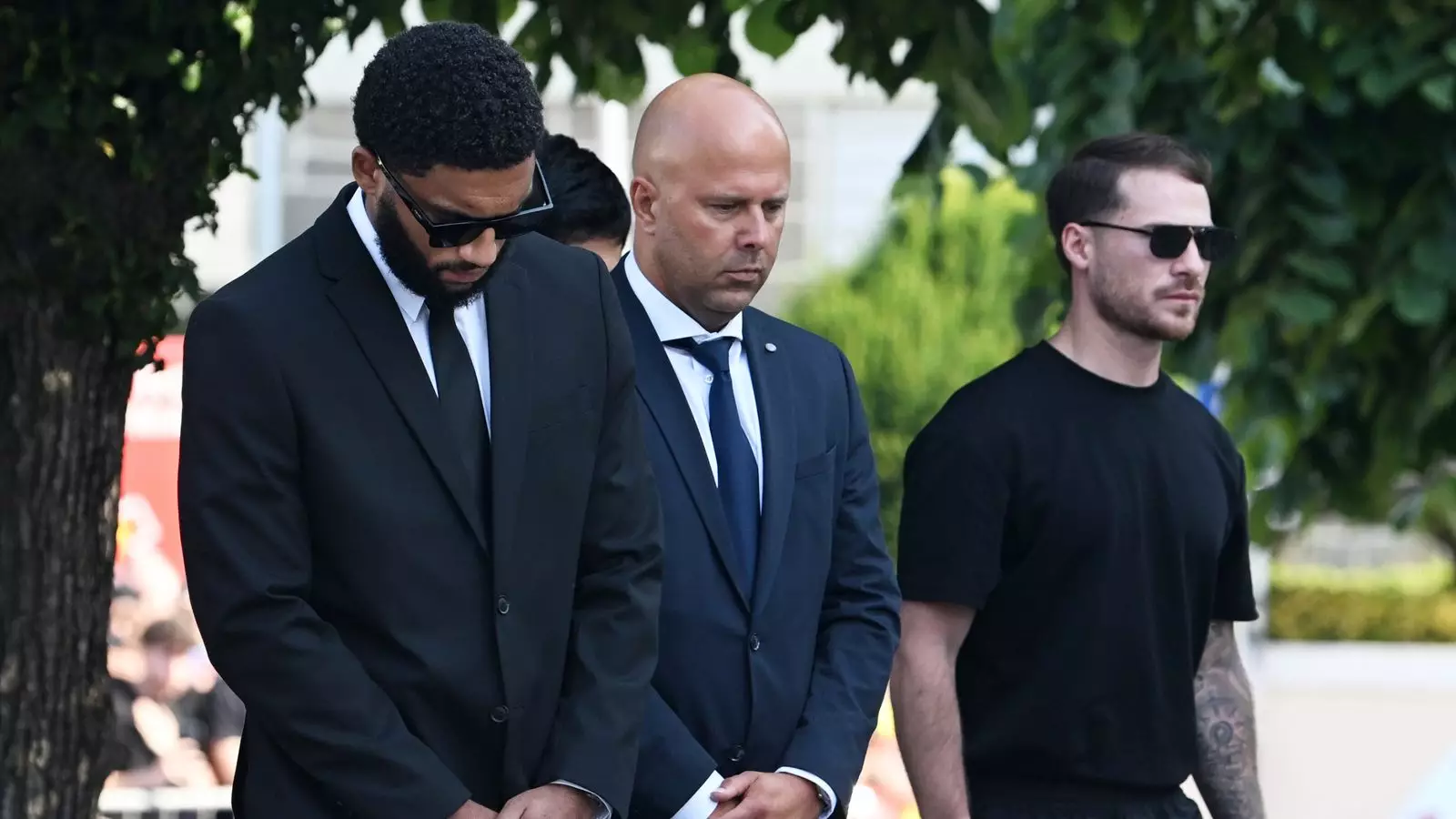The recent funeral of Diogo Jota and his brother Andre Silva casts a stark light on the often unseen emotional toll that comes with fame. Jota, a talented footballer whose career had just begun flourishing at Liverpool, was suddenly taken away in a tragic accident that also claimed his brother. The intimate nature of the funeral, attended by teammates, former colleagues, and national figures, underscores a universal truth: behind every public persona lies a deeply human story filled with love, hopes, and tragedy. The outpouring of grief is a testament to how fragile life can be, even for those who appear invincible on the pitch. It prompts us to reconsider our collective priorities—should we value fame and success over genuine human relationships? Society must recognize that behind the glamour of sports and entertainment are individuals who face vulnerabilities like any other, and their personal losses resonate with us all.
Community and Compassion in Times of Tragedy
The somber gathering in Gondomar, Portugal, was more than a funeral—it was a vivid reflection of community resilience. The presence of football icons and national team representatives demonstrates that collective mourning transcends individual achievements. Yet, it raises questions about the social fabric that unites us. In a world increasingly divided by ideology and superficiality, moments like these reveal a rare unity rooted in compassion. It is distressing how easily societal divisions can overshadow such moments. Society has a moral obligation to foster environments where grief and vulnerability are acknowledged openly, rather than hidden behind façades of strength and stoicism. Public figures, especially athletes, wield influence not just through their performances but through their ability to exemplify empathy. Their participation highlights an opportunity for society to prioritize emotional openness and support networks, especially for those who are most exposed to pressure and scrutiny.
The Culture of Fame and the Illusion of Invincibility
Jota’s death shatters the illusion of invincibility often projected onto athletes. Their physical prowess and the adulation they garner can make them appear larger than life, but tragedies like this serve as stark reminders of human vulnerability. There is an inherent danger in idolizing figures based solely on their athletic achievements, which can inadvertently foster a disconnect from their core humanity. Society must critically appraise how we consume fame—do we elevate athletes and celebrities to an unrealistic pedestal, ignoring the emotional and mental health struggles they also endure? The fatal accident underscores the need for a balanced perspective that acknowledges the human fragility behind the heroism. It’s a wake-up call to advocate for better mental health and safety measures for those in the limelight, recognizing that no level of fame can shield one from life’s unpredictable hardships.
Social Media and the Narrative of Loss
The immediate social media tributes from current and former teammates highlight the modern way society processes grief—public, emotional, and instant. While these expressions of solidarity are heartfelt, they also reveal a paradox: in sharing pain online, we foster a sense of collective mourning, but risk trivializing profound loss if not accompanied by meaningful action. Society must do more than mourn collectively; we need structural support systems that address mental health and safety, especially for young athletes who often face immense pressures. The homage paid to Jota and Silva should push us to advocate for more comprehensive welfare policies, emphasizing preventive measures rather than reactive support only after tragedies occur. Our virtual expressions of grief should be a catalyst for tangible change—championing safer environments and fostering a culture that prioritizes holistic well-being over fleeting fame.
The Ethical Responsibility of Society and Institutions
As we scrutinize the circumstances leading to the tragedy, questions about safety protocols and societal priorities come to the forefront. The fact that the brothers died in a fiery car accident following a suspected tyre blowout prompts us to consider how much value is placed on safety and responsibility. Are we doing enough to protect our loved ones, our public figures, or those most vulnerable? The tragedy calls for an ethical re-evaluation of policies in both the sporting world and broader society. It should galvanize institutions—clubs, governing bodies, governments—to implement more stringent safety standards and mental health initiatives. By doing so, society demonstrates not only a commitment to individual safety but also an acknowledgment of our collective responsibility to prevent preventable tragedies. Ultimately, this incident should serve as a sobering reminder that life’s fragility transcends any societal status, and that empathy and precaution are fundament in a compassionate society.


Leave a Reply